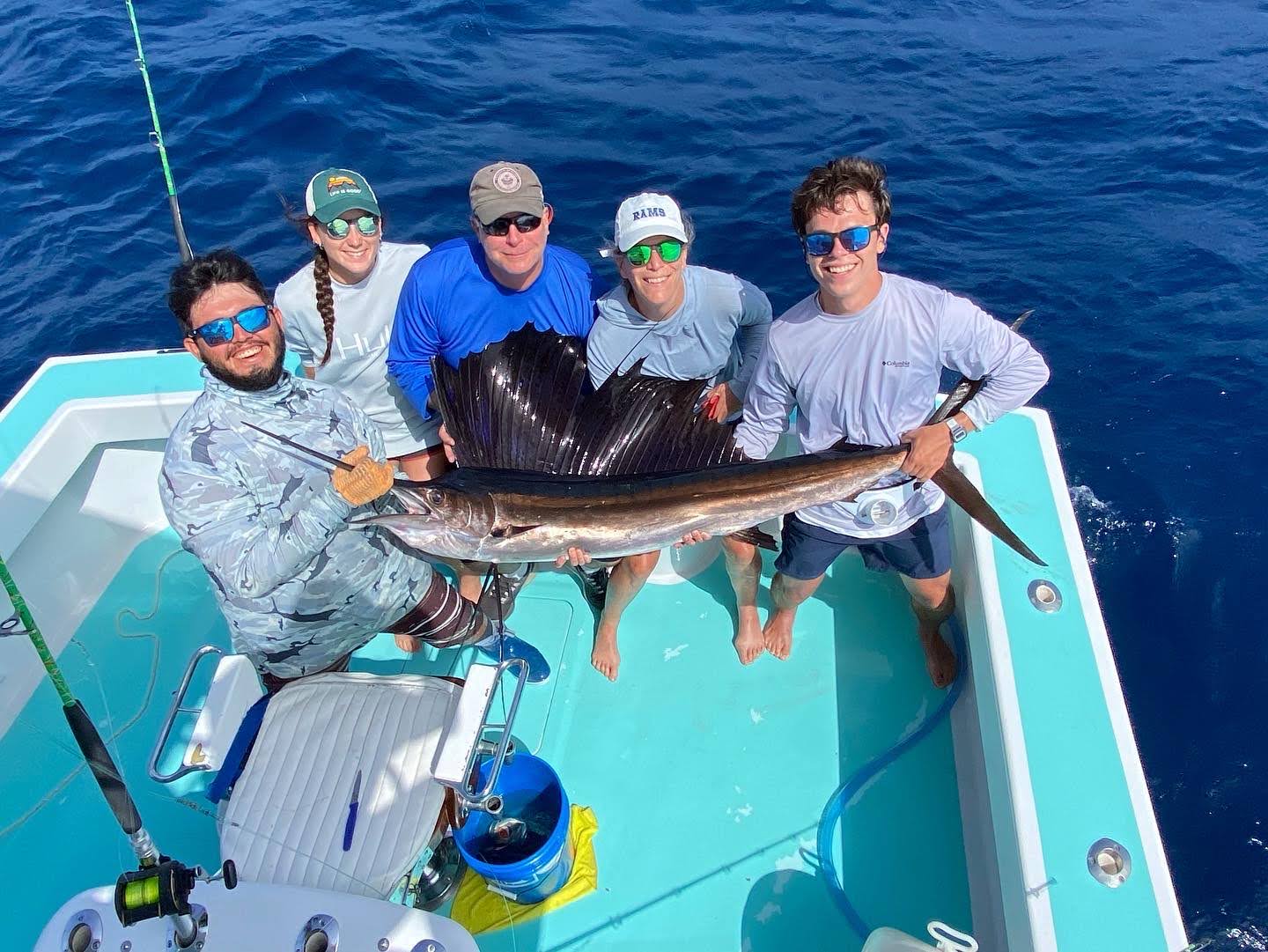Assistant Professor of Biological Sciences Brad Wetherbee, recently deemed “URI’s Shark Guy” in the University of Rhode Island’s magazine, provides opportunities for shark field research to over 100 students annually, according to him.
Wetherbee emphasized the importance of hands-on learning for students in order to gain skills and experience. In his particular field, this looks like catching sharks on a boat in the ocean and recording data. According to Wetherbee, this process is important to the conservation of shark habitats and how they interact with human and environmental activity.
Wetherbee said his ongoing research, done with the help of URI graduate students, is focused on movements, migrations and the habitat use of different species of sharks.
In his various classes, one being BIO360: Marine Biology, undergraduate students are invited to research sharks first-hand. Students help chum for sharks and catch them. During this fieldwork, they take measurements and data. Species of sharks are tagged with satellite transmitters if migration research is needed. The hope is that students will be engaged in research and develop interest.
“If we catch something, bring it on the boat and they see it, touch it and feel it,” Wetherbee said. “It can have a lasting impact on them.”
Mary Parlange, the wife of University President Marc Parlange, experienced reeling and catching mako sharks this past August with Wetherbee. She said the students orient most of these tasks while on the boat.
“He’s a very generous person and spends a lot of time and energy on his students,” said Parlange. “He tries to generate interest in marine biology and oceanography.”
Although she hadn’t been fishing before, Wetherbee encouraged her to reel in the shark herself.
“It was really fun,” Parlange said. “He’s the type of person to say ‘just try it.’”
This fieldwork is a continuation of what Wetherbee has researched for over two decades.
After receiving his undergraduate degree at Willamette University in Oregon, Wetherbee attended the University of Miami in Florida for his graduate degree. After speaking with faculty in Miami about their various research disciplines, he took interest in sharks.
According to Wetherbee, he researched in Hawaii after living in Miami. There, he studied the biology of sharks. In his subsequent years of research, he became focused on the movement ecology of sharks.
This semester, he’s teaching a class at URI titled the “Biology of Sharks and their Relatives” for juniors with a prerequisite of BIO360. According to Wetherbee, an interesting aspect of sharks are their primitive characteristics. Sharks have been around for 400 million years, and therefore are highly adapted.
Although the species is fascinating, the field can seem daunting, Wetherbee emphasized how the media creates hysteria around sharks. They’re highly associated with violence and horror. The classic movie “Jaws,” directed by Steven Spielberg, is an example of how mass media portrays the species. This can deter involvement. The lack of diversity in marine biology is also clear.
“Many students are historically underrepresented in marine biology, biology and natural sciences,” said Wetherbee.
With this in mind, Wetherbee started “URI’s Shark Camp” in the summer of 2019. This is an outreach program for high school students living in Providence who are interested in marine life. The camp is free and transportation is provided for students.
According to Wetherbee, students go fishing, catch sharks and other marine life. Other activities include sailing and going to the Mystic Aquarium.
Since college is around the corner for these attendees, members of the URI provost office provide a workshop on applying to colleges. They inform the high school students on financial aid and scholarships.
According to Wetherbee, some of them have never even seen the ocean. Part of the camp’s purpose is to provide opportunities to underrepresented students and, in the long run, broaden the diversity of the field.
According to Wetherbee, opportunities for more experience is an important tool in advancing in any field. His fieldwork gets students used to research and collecting data.
“Students get in the habit of looking at things from a broader perspective rather than doing whatever the professor wants,” said Wetherbee.
The initiatives students take help form skills. Wetherbee allows students to direct research alongside him.
“There’s a big difference between taking a bunch of classes and listening to somebody lecture than if you’d go and do it yourself,” said Wetherbee.
Colby Kresge, a current graduate student at URI, has worked with Wetherbee since his sophomore year in 2019. After being a student in his class at the time, he was invited to direct research while getting his undergraduate degree.
According to Kresge, he was an environmental science and management major who was inspired by Wetherbee to deter from land-oriented research to marine life after finishing his undergrad. He’s currently researching migratory patterns of Mako sharks in the Atlantic Ocean.
“He’s one hundred percent influenced not only my education, my career, but my life,” said Kresge.
Wetherbee has seen students from shark camp apply to URI. He’s seen other students in his undergraduate classes earn their degree and begin graduate school because of the impact he’s had.
Like Kresge emphasized, Wetherbee changes the trajectory of students’ passions through the research opportunities and guidance he provides for them.

